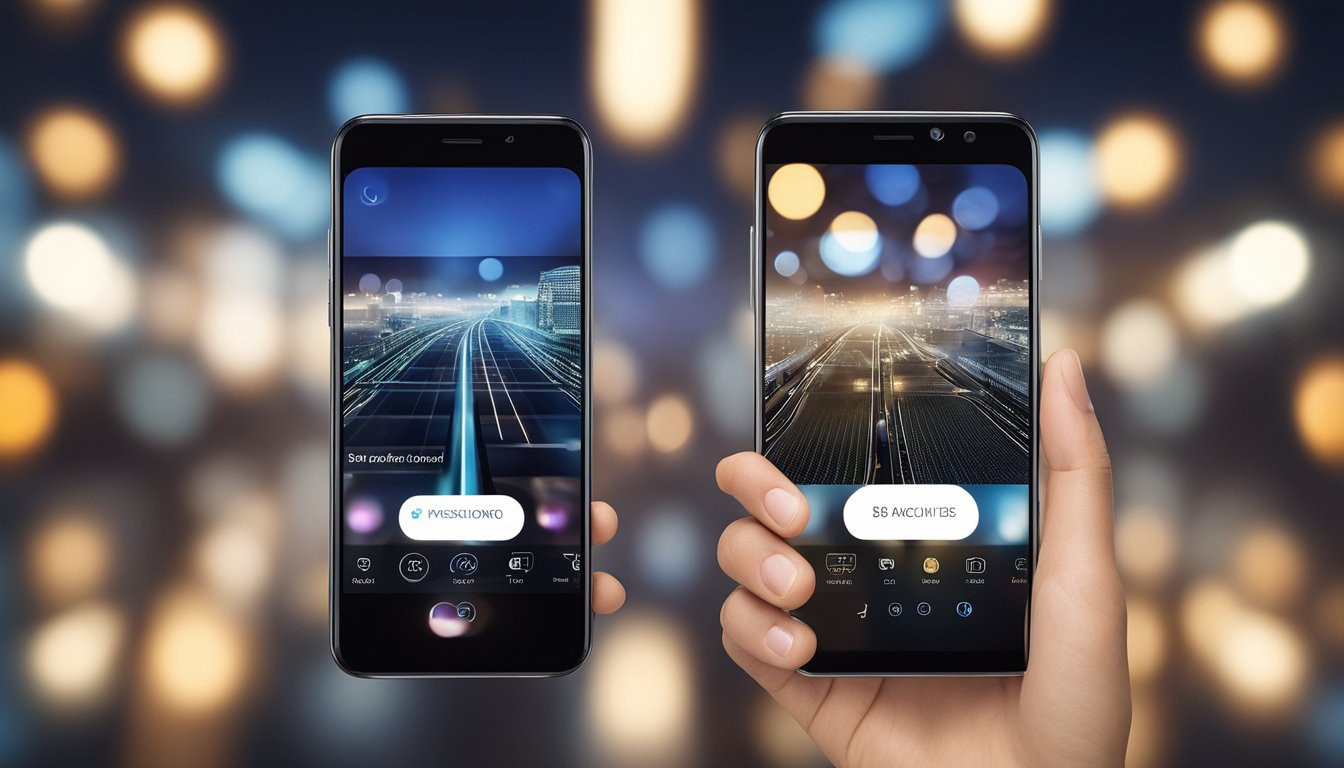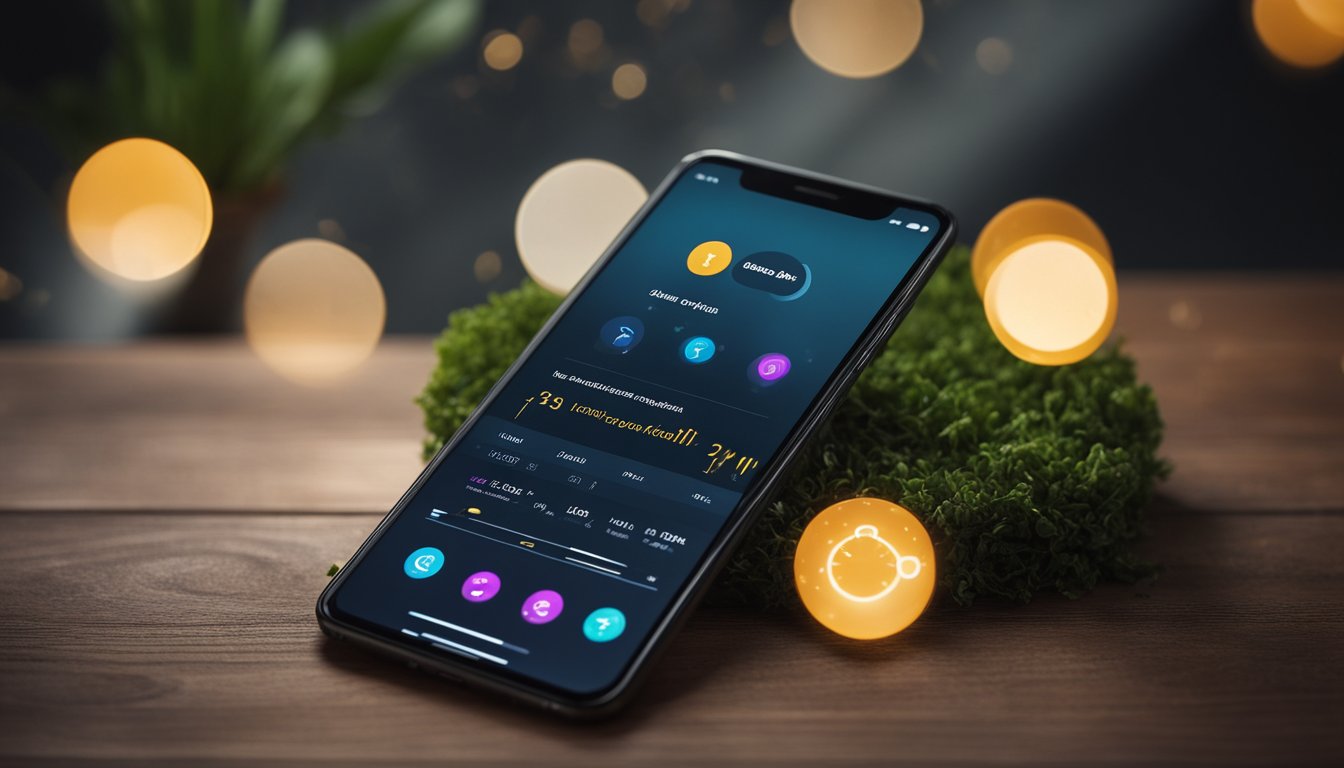Optimizing Your Mobile App for Voice Search and Recognition
As the world becomes increasingly reliant on mobile apps, it's important to ensure that your app is optimized for voice search and recognition. With more and more people using voice search to find information and complete tasks, creating a mobile app that can understand and respond to voice commands is essential for staying ahead of the competition.

Understanding voice search and recognition is the first step in creating a voice-optimized mobile app. Voice search allows users to speak their search queries instead of typing them, while speech recognition technology enables mobile apps to understand and interpret those queries. By leveraging these technologies, you can create a mobile app that is not only more user-friendly but also more efficient and effective.
Creating a voice-optimized mobile app involves a number of steps, including designing a user interface that is easy to navigate with voice commands, integrating speech recognition APIs, and testing your app to ensure that it can accurately interpret and respond to voice commands. With the right approach, however, you can create a mobile app that is optimized for voice search and recognition and provides a seamless user experience.
Key Takeaways
- Understanding voice search and recognition is essential for creating a mobile app that is optimized for voice commands.
- Creating a voice-optimized mobile app involves designing a user interface that is easy to navigate with voice commands, integrating speech recognition APIs, and testing your app to ensure accuracy.
- By creating a mobile app that is optimized for voice search and recognition, you can provide a more user-friendly and efficient experience for your users.
Understanding Voice Search and Recognition

As a mobile app developer, I understand the importance of optimizing mobile apps for voice search and recognition. Voice search and recognition have been evolving over the years, and it's essential to understand how it works to create an app that meets users' needs. In this section, I will explain the evolution of voice assistants, speech recognition technologies, and voice search optimization.
Evolution of Voice Assistants
Voice assistants have been around for a while, and they have evolved over the years. The first voice assistant was introduced in 2011, and since then, we have seen significant improvements in natural language processing, speech recognition, and personalization. Today, smart speakers like Google Home, Alexa, and Siri are popular, and they come with advanced features that make them more useful to users.
Speech Recognition Technologies
Speech recognition technologies have improved significantly over the years. Automatic Speech Recognition (ASR) is a technology that converts spoken words into text. Machine learning and artificial intelligence have made ASR more accurate and efficient. Today, ASR is used in many applications, including virtual assistants, smart speakers, and mobile apps.
Voice Search Optimization
Voice search optimization is the process of optimizing websites and mobile apps for voice search queries. Voice search queries are different from traditional search queries because they are more conversational and longer. Websites and mobile apps that are optimized for voice search have a higher chance of appearing in featured snippets, which are displayed at the top of search results.
To optimize a mobile app for voice search, it's essential to understand the user's intent and the spoken word's context. Personalization and conversational search are critical factors to consider when optimizing a mobile app for voice search. Mobile users expect a seamless experience when using voice search, and it's essential to deliver a user-friendly interface that meets their needs.
In summary, understanding voice search and recognition is essential when creating a mobile app that meets users' needs. The evolution of voice assistants, speech recognition technologies, and voice search optimization has made it possible for mobile apps to deliver a more personalized and engaging experience to users.
Creating a Voice-Optimized Mobile App

As mobile devices become more prevalent and voice recognition software improves, creating a voice-optimized mobile app has become a necessity for businesses. By optimizing your app for voice search and recognition, you can improve the customer experience and increase engagement. In this section, I will discuss key considerations and technologies for creating a voice-optimized mobile app.
Key Considerations
When creating a voice-optimized mobile app, there are several key considerations to keep in mind. First, you need to decide whether you want to create a speaker-dependent or speaker-independent app. Speaker-dependent apps require users to train the app to recognize their voice, while speaker-independent apps can recognize any voice. Speaker-independent apps are more user-friendly, but speaker-dependent apps can be more accurate.
Another key consideration is the deployment model. You can choose to deploy your app on a web server, on a mobile device, or both. If you choose to deploy on a web server, you will need to use JavaScript, APIs, and libraries such as Nuance, while if you choose to deploy on a mobile device, you will need to use software such as HTML, CSS, and Python.
Privacy is also a crucial consideration when creating a voice-optimized mobile app. You need to ensure that your app is secure and that user data is protected. SSL and schema are two technologies that can help you achieve this.
Technologies and Libraries
To create a voice-optimized mobile app, you will need to use several technologies and libraries. The following are some of the most important:
- Web Speech API: This API allows you to add speech recognition and synthesis to your web apps.
- Google Speech API: This API provides advanced speech recognition capabilities, including support for multiple languages and accents.
- Bing Speech API: This API provides speech recognition and synthesis capabilities, including support for speaker recognition and background noise removal.
- JavaScript: This is the most popular programming language for web development and is essential for creating voice-optimized web apps.
- APIs: APIs such as Nuance can provide advanced voice recognition and synthesis capabilities.
- Libraries: Libraries such as SpeechSynthesis can help you add speech synthesis to your web apps.
In addition to these technologies and libraries, you will need to consider factors such as speed, volume, accent, errors, and background noise when creating a voice-optimized mobile app. Navigation and search functionality are also important considerations, especially for ecommerce apps.
Overall, creating a voice-optimized mobile app requires careful consideration of key factors and the use of advanced technologies and libraries. By creating a voice-optimized app, you can improve the customer experience and increase engagement.
Testing and Deployment

Quality Assurance
As with any mobile app development, quality assurance is a critical step in ensuring the app functions as intended. When it comes to voice search and recognition, there are a few additional considerations to keep in mind.
Firstly, it's important to test the app with a variety of accents and speech patterns to ensure that the app can accurately recognize and respond to a wide range of users. This can be done through outsourcing or using tools like Amazon Alexa or Amazon Echo to simulate different types of users.
Another factor to consider is natural language understanding (NLU). Testing the app's ability to understand and respond to a variety of synonyms and phrases is crucial to ensuring that users can interact with the app in a natural and intuitive way.
Finally, it's important to test the app's fulfillment capabilities. This means ensuring that the app can accurately and efficiently provide the information or action that the user is requesting through voice search.
Deployment Strategies
Once the app has gone through rigorous testing and quality assurance, it's time to deploy it to the app store and make it available to users.
One important factor to consider is the use of text-to-speech and speech synthesis technologies. These technologies can greatly improve the user experience by providing a more natural and human-like voice for the app's responses.
Another important consideration is the use of linear predictive coding (LPC) for speaker-dependent and speaker-independent voice recognition. This technology can greatly improve the accuracy of voice recognition by analyzing the pitch and other characteristics of the user's voice.
When deploying the app, it's also important to consider the use of backlinko and other SEO strategies to ensure that the app is easily discoverable through voice search.
Overall, testing and deployment are critical steps in creating a mobile app that is optimized for voice search and recognition. By ensuring that the app can accurately recognize and respond to a wide range of users, understand natural language, and efficiently fulfill user requests, the app can provide a seamless and intuitive user experience.
Frequently Asked Questions

What are the key considerations for optimizing a mobile app for voice search and recognition?
When optimizing a mobile app for voice search and recognition, it is important to consider the language and dialect of the target audience, the context in which the app will be used, and the types of queries users are likely to make. It is also important to ensure that the app's interface is designed to facilitate voice-based interactions and that the app is compatible with a variety of devices and platforms.
How can AI be used to enhance voice search optimization in mobile apps?
Artificial intelligence (AI) can be used to enhance voice search optimization in mobile apps by enabling the app to understand natural language queries and provide accurate and relevant responses. Machine learning algorithms can be used to analyze user behavior and improve the app's ability to recognize and respond to voice-based queries over time.
What are some best practices for conducting keyword research for voice search optimization in mobile apps?
Some best practices for conducting keyword research for voice search optimization in mobile apps include using long-tail keywords, focusing on conversational queries, and considering the intent behind user queries. It is also important to monitor and analyze user behavior to identify emerging trends and adjust keyword strategies accordingly.
How can content be optimized for voice search in a mobile app?
Content can be optimized for voice search in a mobile app by focusing on natural language and conversational style, using structured data to provide context and improve understanding, and incorporating frequently asked questions and other user-generated content. It is also important to ensure that content is mobile-friendly and easy to navigate using voice-based interactions.
What are some key features to include in a mobile app optimized for voice search and recognition?
Some key features to include in a mobile app optimized for voice search and recognition include natural language processing capabilities, personalized recommendations based on user behavior, and the ability to recognize and respond to a variety of voice-based queries. It is also important to ensure that the app's interface is designed to facilitate voice-based interactions and that the app is compatible with a variety of devices and platforms.
What are some common challenges to consider when developing a mobile app with voice recognition capabilities?
Some common challenges to consider when developing a mobile app with voice recognition capabilities include ensuring compatibility with a variety of devices and platforms, addressing language and dialect differences, and ensuring that the app's interface is designed to facilitate voice-based interactions. It is also important to consider privacy and security concerns related to voice-based interactions and to provide users with clear and transparent information about how their data will be used.

We are committed to delivering a new level of automation that will help organizations save time, money, and staffing resources.
 WRITE FOR US!
WRITE FOR US!
